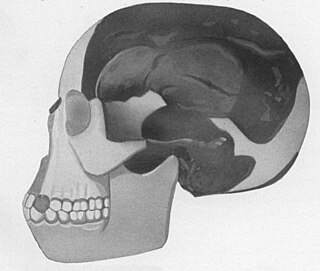Related Research Articles

Scientific misconduct is the violation of the standard codes of scholarly conduct and ethical behavior in the publication of professional scientific research. It is violation of scientific integrity: violation of the scientific method and of research ethics in science, including in the design, conduct, and reporting of research.

Leiden University is a public research university in Leiden, Netherlands. It was founded as a Protestant university in 1575 by William, Prince of Orange as the first university in the Netherlands.

Robertus Henricus "Robbert" Dijkgraaf, is a Dutch theoretical physicist, mathematician and string theorist, and the Minister of Education, Culture and Science in the Netherlands from 2022 until 2024. From July 2012 until his inauguration as a minister, he had been the director and Leon Levy professor at the Institute for Advanced Study in Princeton, New Jersey, and a tenured professor at the University of Amsterdam.
René F.W. Diekstra is a Dutch psychologist. Apart from being a scientist, he is also well known as an author of popular psychology books. He is the developer of many psychological programs for policy and well-being and writes for Dutch regional newspapers and several magazines. From 1987 to 1989, he was appointed manager of the programme on Psychosocial and Behavioral aspects of Health and Development of the World Health Organization in Geneva. He was also the founder of the International Academy of Suicide Research and the scientific journal Archives of Suicide Research. Diekstra became one of the foremost researchers in the field of suicidal behavior and author of many scientific papers and books in the field. He was also one of the first recipients of the Stengel Award, the world's most prestigious honor in the field of research on suicide.

Marc D. Hauser is an American evolutionary biologist and a researcher in primate behavior, animal cognition and human behavior and neuroscience. Hauser was a professor of psychology at Harvard University from 1998 to 2011. In 2010 Harvard found him guilty of research misconduct, specifically fabricating and falsifying data, after which he resigned. Because Hauser's research was financed by government grants, the Office of Research Integrity of the Health and Human Services Department also investigated, finding in 2012 that Hauser had fabricated data, manipulated experimental results, and published falsified findings.

Paul Schnabel is a Dutch politician and sociologist who served on the Social and Economic Council (SER) from 2013 to 2015 and in the Senate on behalf of Democrats 66 (D66) from 2015 until 2019.

Peter Nijkamp is a Dutch economist, Professor of Regional Economics and Economic Geography at the Vrije Universiteit, Amsterdam, the Netherlands, a fellow of the Tinbergen Institute and President of the Governing Board of the Netherlands Research Council (NWO). He is ranked among the top 100 economists in the world according to IDEAS/RePEc, and is by far the most prolific economist. Towards the end of his career at the VU university Nijkamp faced accusations of self-plagiarism and VU-appointed investigators have criticised referencing methods in some of his work.

Eduard Jan Bomhoff is a Dutch economist and retired politician who served as Deputy Prime Minister and Minister of Health, Welfare and Sport for the Pim Fortuyn List (LPF) in the first Balkenende cabinet from 22 July 2002 until 16 October 2002. He is currently an economics professor at the Monash University Malaysia Campus in Kuala Lumpur.
Diederik Alexander Stapel is a Dutch former professor of social psychology at Tilburg University. In 2011 Tilburg University suspended Stapel for fabricating and manipulating data for his research publications. This scientific misconduct took place over a number of years and affected dozens of his publications. By 2015, fifty-eight of Stapel's publications had been retracted. He has been described in coverage by the New York Times as "the biggest con man in academic science".
Roosje (Roos) Vonk is a Dutch professor of social psychology at the Radboud University in Nijmegen author, and motivational speaker.

The Leiden Institute for Brain and Cognition or LIBC is an interfaculty center for interdisciplinary research on brain and cognition in the Netherlands. The Leiden University Medical Center and the Faculties of Humanities, Science and Social Behavioural Sciences of Leiden University participate in the LIBC. The LIBC research programs are presented in laboratories. There are different laboratories for all stages of the life span.

Johannes Petrus "John" van de Geer was a Dutch psychologist, and Professor of Experimental Psychology at Leiden University, particularly known for his "Introduction to multivariate analysis for the social sciences".
Harry J.G. Kempen was a Dutch cultural psychologist, and associate professor at the Nijmegen Cultural Psychology Group (NCPG) of the Radboud University Nijmegen, known for his work with Hubert Hermans on the Dialogical self theory.

Naomi Ellemers is a distinguished professor of social psychology at Utrecht University since September 2015.

Adrianus Willem "Aad" van der Vaart is a Dutch professor of Stochastics at the Delft Institute of Applied Mathematics at Delft University of Technology.

Corinne Lisette Hofman FBA is a Dutch professor of Caribbean Archaeology at Leiden University since 2007, where has been awarded several accolades including the Dutch Spinoza Prize. In 2023 University of Leiden placed her on leave to investigate long-running cases of intimidation, discrimination, abuse of power and violation of scientific integrity.
Marian Bakermans-Kranenburg is a Dutch psychologist focused attachment and emotion regulation in parents and their children, with special emphasis on the neurobiological processes involved in parenting and development. She is currently a Full Professor at Ispa-Instituto Universitário (Portugal), a visiting Scholar & Research Associate in the Center for Attachment Research at The New School for Social Research, and a visiting Consultant at the National Institute of Education of the Nanyang Technological University (Singapore).

Eveline Crone is a Dutch professor of cognitive neuroscience and developmental psychology at Leiden University. Her research focuses on risky behaviors in adolescent humans during puberty and examines the function of those risks. For her research in adolescent brain development and behaviour, she was awarded the Spinoza Prize, the highest recognition for Dutch scientists, in 2017.
Cornelia Wilhelmina "Willemijn" Fock was a Dutch art historian. She was professor of the history of applied arts at Leiden University.
References
- ↑ 'Italiaanse docent van Universiteit Leiden overschreed vele normen' – website of the Dutch national broadcasting organisation NOS
- 1 2 Italiaanse docent Universiteit Leiden fraudeerde met vijftien onderzoeken – website of the Dutch national broadcasting organisation NOS
- ↑ Colzato official site: Research interests Page accessed 7 May 2015
- 1 2 Colzato CV Archived 4 March 2016 at the Wayback Machine Page accessed 7 May 2015
- ↑ Doctoral Thesis Colzato, L.S. (2005): Commonalities of feature integration processing in and across perception and action planning – website of the Leiden University Library
- ↑ Voormalig docent Universiteit Leiden riskeert celstraf na bloedafname zonder toestemming – website of the current affairs programme EenVandaag of the first national Dutch television station NPO 1
- ↑ Lorenza Colzato Professor by Special Appointment in Germany – website of Leiden University
- ↑ News: APL-Professur Colzato – website of the Faculty of Psychology of the Ruhr University Bochum
- ↑ Unsere mitarbeiter: Lorenza Colzato, Dr. rer. nat. Archived 4 July 2022 at the Wayback Machine – website of the University Hospital Carl Gustav Carus Dresden of TU Dresden
- ↑ Sarah Knapton for The Daily Telegraph. 3 December 2013 Lacking inspiration? Exercise found to boost creativity
- ↑ Mandy Oaklander for Time. 14 January 2015 You Can Make People Trust You With This Scent, Study Says
- ↑ Jayalakshmi K for the International Business Times. 29 October 2014 Meditation Shown to Improve Creative Thinking Even Without Prior Practice
- ↑ "Breach of academic integrity by former employee of Leiden University". Leiden University News. Retrieved 18 December 2019.
- ↑ Braun, Bart. "How a Leiden psychologist committed fraud". Mare. Retrieved 18 December 2019.
- ↑ Psycholoog schond vele normen (Psychologist violated many norms) published 6 December 2019, Dutch language in NRC Handelsblad by Sander Voormolen, retrieved 7 December 2019
- ↑ Leidse klokkenluiders: Je leert heel snel om je mond te houden (Whistle blowers from Leiden: You quickly learn to shut your mouth) published 16 December 2019, Dutch language
- ↑ "Beschuldigde psycholoog: 'Ik voerde geen schrikbewind'". Mare. Retrieved 18 December 2019.
- ↑ Marcus, Author Adam (5 December 2019). "Psychology researcher committed misconduct, says university". Retraction Watch. Retrieved 20 February 2020.
{{cite web}}:|first=has generic name (help) - ↑ "Beschuldigde psycholoog: 'Ik voerde geen schrikbewind'". Mare Online (in Dutch). Retrieved 20 February 2020.
- ↑ "Leidse psycholoog schond inderdaad gedragsregels". NRC Handelsblad (in Dutch). Retrieved 22 September 2020.
- ↑ https://retractionwatch.com/wp-content/uploads/2019/12/advies-cwi-2019-01-geanonimiseerd.pdf [ bare URL PDF ]
- ↑ Colzato, Lorenza S.; Steenbergen, Laura; Sellaro, Roberta (19 January 2021). "Retraction Note to: The effect of gamma-enhancing binaural beats on the control of feature bindings". Experimental Brain Research. 239 (2): 363. doi:10.1007/s00221-020-06018-z. PMC 8025283 . PMID 33469706.
- ↑ Frontiers Editorial Office, Lausanne, Switzerland (2017). "Commentary: Overweight and Cognitive Performance: High Body Mass Index Is Associated with Impairment in Reactive Control during Task Switching". Frontiers in Nutrition. 6: 198. doi: 10.3389/fnut.2019.00198 . PMC 7025479 . PMID 32118023.
{{cite journal}}: CS1 maint: multiple names: authors list (link) - ↑ Psycholoog fraudeerde in 15 artikelen: hoe proefpersonen telkens weer verdwenen – website of the Leiden University magazine Mare
- ↑ Universitair docent Leiden fraudeerde met vijftien onderzoeken – website of the Dutch regional broadcast organisation Omroep West
- ↑ "Leiden University publishes the titles of seven tainted scientific articles".
'Italiaanse docent van Universiteit Leiden overschreed vele normen'